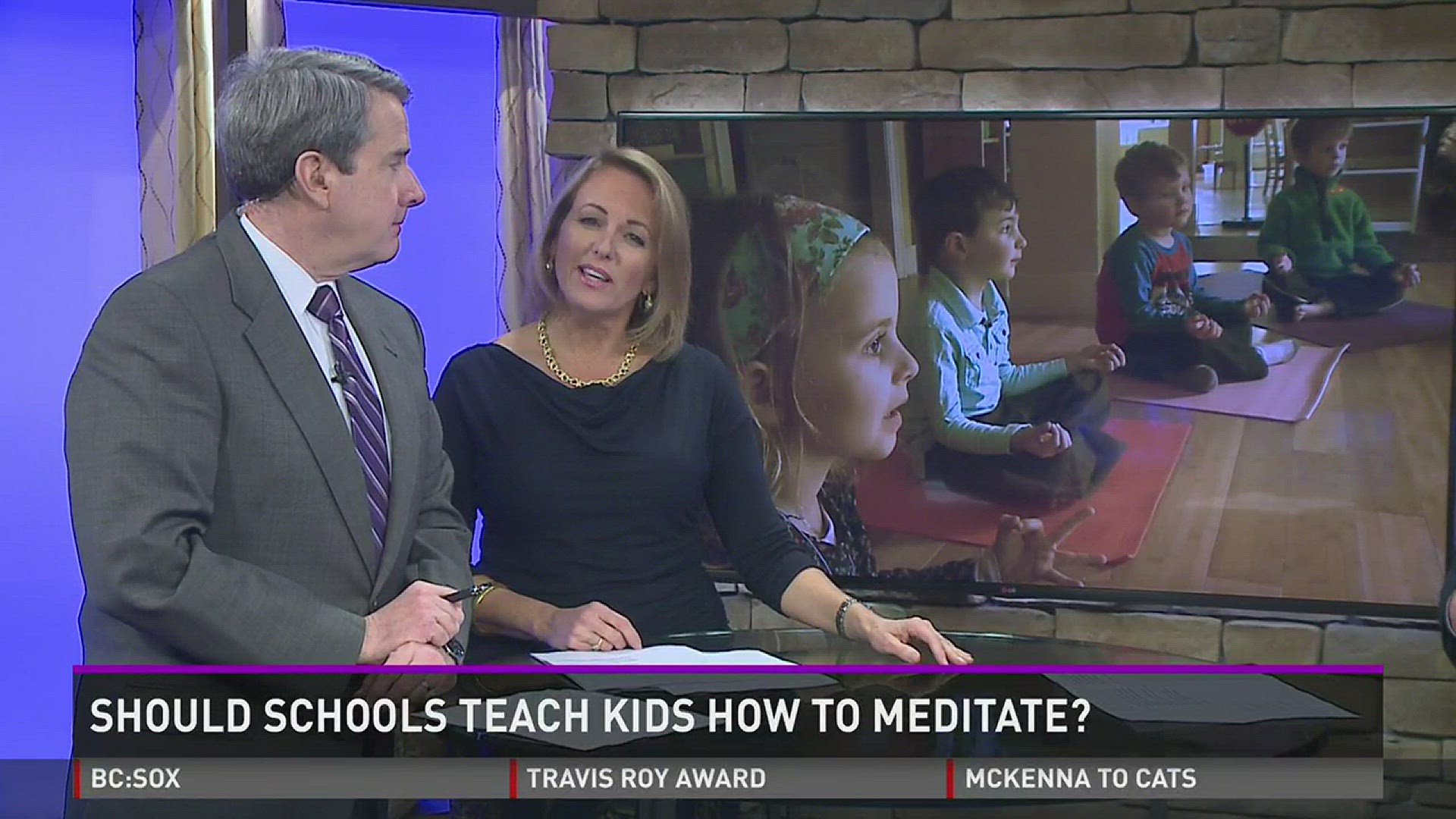(NEWS CENTER) -- Parents know how stressed their kids can get, juggling school work, extracurricular activities and making friends.
Everybody has their own way of dealing with that stress, and some schools are teaching an unconventional technique to students: meditation.
Twice a week at Rosemont Nursery School in Portland, the normal chaos and noise of a preschool subsides, and kids sit down for 45 minutes of meditation and yoga.
Cayce Lannon, founder of Maine Yoga Kids, is teaching them to find their center.
"Parents sometimes say, 'What do you mean they're going to sit and mediate and do yoga?' They just can't imagine what that looks like," she said.
Lannon doesn't expect the kids to sit still or do exactly what she's saying all the time. She does try to keep them entertained with singing, dancing and coloring.
It looks like fun, but are the kids really getting anything out of it?

Dr. Karen Houseknect, a pharmacology professor at the University of New England and a long time meditator, admits people can be skeptical about meditating, because of the stereotypes.
They want science, like brain scans, to back it up.
Scientists haven't been studying meditation long enough to prove all of its benefits, Houseknecht said, but science does show meditation can potentially prevent your brain from getting altered by chronic stress.
"Meditation has been shown to lower stress hormones like cortisol and adrenaline, that fight or flight response," she said. "Overtime, lowering that stress response prevents your brain from remodeling into a chronic stress brain."
Meditation is also proven to activate the parts of the brain involved in attention and emotion.
"I think we just need to talk about it more," she said, "talk about it as another tool in our toolbox for holistic care, and it can actually be kind of fun too."
The REAL School on Mackworth Island is for students in the Windham-Raymond school district who've struggled in traditional settings.
When the highschoolers hear their instructor Erica Marcus ring a bell, they know it's time to focus on their breath.
"I just go right into my zone," Emma Doyon, a senior, said. "I'm like kind of sleeping, but I'm not."
Doyon is dealing with the same pressures as most graduating teenagers.
"When I think about college, I get super stressed, and it helps me out to calm down and feel like I'm okay," she explained.
Even though not all her peers understand it, Doyon said meditation works for her.
Teachers at every level are starting to see its benefits. However, because meditation is not a required subject, it can be tough to get the money to teach it in schools. Many of the instructors rely on grants. They're hoping all students can at least have access to meditation classes.

